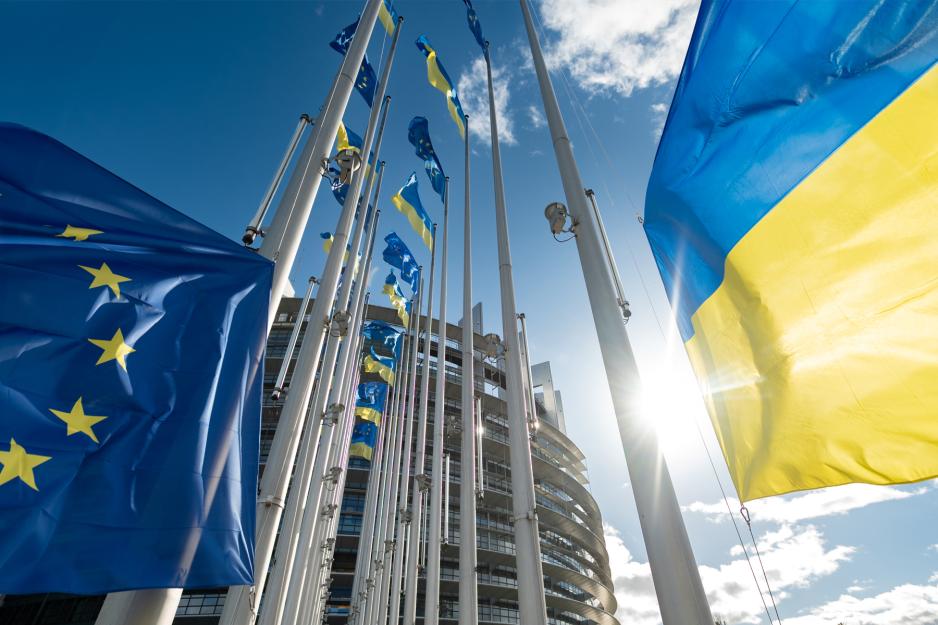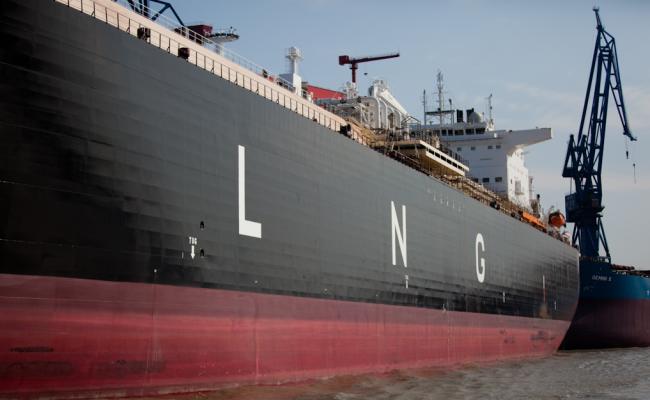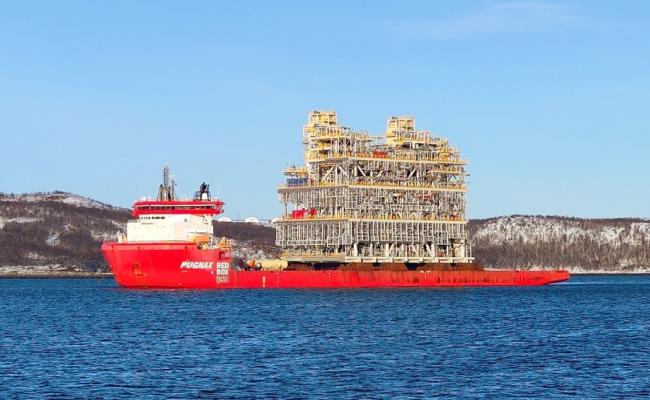EU Bans Resale of Russian LNG, Impacts Remain to be Seen

EU and Ukraine flags in Brussels 2024. (Source: Courtesy of and © European Union, 2024 - EP)
After much debate and wrangling the EU and its member states are set to sanction the transshipment of Russian liquefied natural gas in EU ports. It will take months for the impact of the ban, which is suggested to come into effect in March 2025, to become apparent. In anticipation of sanctions Novatek has begun assembling a growing fleet of LNG carriers.
After months of lobbying, including by Ukrainian officials and European environmental groups, the EU has agreed to a partial ban of Russian liquefied natural gas (LNG). However, falling short of a full embargo the measures only prohibit the re-export, also known as transshipment, of LNG via European ports. The ban could affect around 20 percent of Russian LNG destined for Europe.
“In 2023, the EU paid about €8.1 billion for about 18 billion cubic meters (bcm) of Russian LNG; banning about 5.3 bcm in transshipments could represent a loss of about €2.5 billion or more,” explains Ana Maria Jaller-Makarewicz, Lead Energy Analyst for Europe at IEEFA, a global think tank examining issues related to energy markets, trends, and policies.
Discussions over a full ban had been ongoing for more than a year, with various officials from Spain, Belgium and recently Sweden and Germany coming out in favor. But at the 11th hour Germany unexpectedly asked for clarifications on some of the measures.
Lowest common denominator
A full import ban had been a long-shot from the start as countries like Spain, France, and Belgium rely on Russian LNG for a significant share of their overall supply. In contrast, the more limited ban on re-exports does not affect European energy security.
The sanctions true impact remains to be seen. For one, the ban appears to not take effect until March 2025 allowing Russia to transship LNG for another full winter season. Transshipments are concentrated during the winter months when Russia uses Europe as a stopover point en route to China.
Yamal LNG will be confronted with the reality
“Russian LNG exports could decrease during winter months. Yamal LNG uses these routes (via Zeebrugge and Montoir-de-Bretagne) mainly during the winter months when icy waters make it difficult for LNG tankers to reach Asian customers located to the east of Russia,” elaborated Jaller-Makarewicz.
There is also debate if a ban on transshipment while simultaneously still allowing Russian LNG into the EU holds the possibility that imports will actually increase; rather than re-exporting LNG to countries outside the EU traders may simply sell those volumes into the European market.
However, existing contractual obligations suggest that Yamal LNG has to continue deliveries to buyers in Asia, even following the transshipment ban going into effect.
“Hence Yamal LNG will be confronted with the reality that without re-export services in the EU, its transportation costs will increase significantly,” explains Angelos Koutsis, Energy Policy Officer at Bond Beter Leefmilieu at Belgian environmental and nature organization, in a recent report.
Yamal LNG’s export capacity may also decrease as scarce ice-class Arc7 LNG carriers have to travel further distances, posits Koutsis.
Time will tell
Seemingly in anticipation of a transshipment ban and in an effort to circumvent its impacts Novatek has been busy assembling a fleet of conventional and lower ice-class LNG carriers – including four newbuild carriers whose ownership was transferred to an entity in Dubai in April.
“It’s not a ban on the Russian molecule itself since that’s very hard to pass unanimously in the EU, so imports may very well rise. It’s up to individual Member States to act individually,” explained one industry expert speaking off the record since they hadn’t seen the final text yet.
The full details of the 14th sanctions package, including the start date of the re-export ban, will become public once approved by the EU foreign ministers as early as Monday, June 24.



